Crystal meth, the drug of the future
The rush from crack lasts 20 minutes. Crystal meth keeps you high for at least 12 hours, making it an attractive economic choice for the down and out – and the well-heeled. Teun Voeten in Mexico on the globalisation of this deadly drug
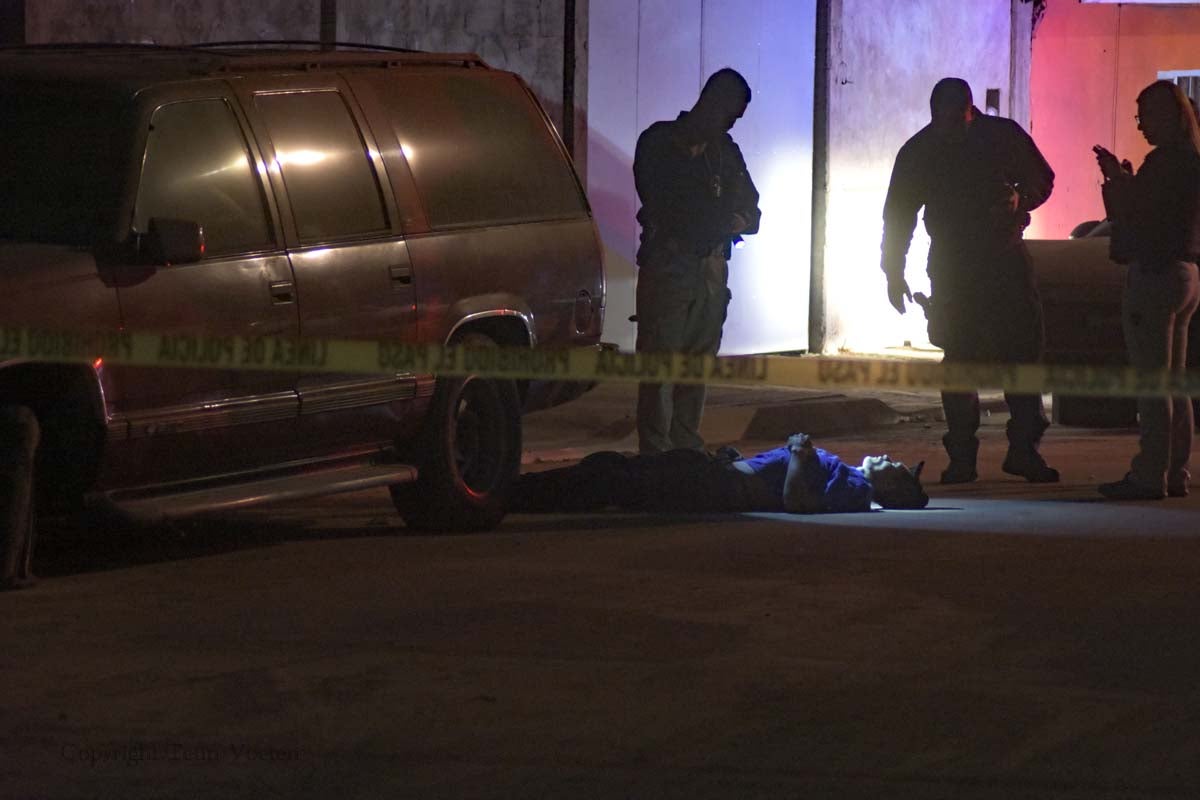
The centre of Tijuana looks like a scene from a dystopian science fiction film. At first sight, you see glitzy skyscrapers and fancy shopping malls. In between, a jumble of highways, fly-overs, underpasses and bridges. But underneath, invisible to most drivers who whizz past, a population of paupers crawl around like zombies. They move around on traffic islands and bivouac behind crash barriers and concrete traffic divisions. There, they drink cheap beer and get high on crystal meth.
They look scary, but I overcome my fear and walk up to a small group, who turn out to be friendly and talkative. Ramón is a scruffy old man with a beard. He introduces me to his friend, José, who has only one leg. After an infection, he developed gangrene and his leg had to be amputated. José stirs a little jar with a brown fluid. They use a mixture of heroin and crystal meth. There are hardly any veins left on his last leg and his arms. Ramón helps his friend to inject the mixture in his neck. With a grimace of pain, but also of bliss, José undergoes the procedure.
A hit of meth costs around 50 pesos, roughly $3. They can earn that in an hour or so, cleaning windshields at traffic lights. Yes, they would love to quit drugs. But they cannot afford to go to rehab, which costs a minimum of $300. According to the Tijuana-based anthropologist and human rights activist Victor Clarke, roughly 5 per cent of the city is addicted to meth – resulting in a population of 60,000 addicts.
“Papi, papi, el crystal es la droga de la futura,” the son of drug lord Ismael “El Mayo” Zambada must have declared to convince his father, the second in command in the Sinaloa cartel. Some old-school cartel bosses don’t want to have anything to do with it, and stick to their original line of business, cocaine-trafficking. But most cartels have given in and have included crystal meth in their business portfolios.
The drug is making a rapid advance worldwide. Not only in the slums of Latin America but also in Europe, and particularly in the Netherlands where one lab after another has been discovered. The profits are enormous and it can be synthetically produced almost everywhere, regardless of climate and soil. In 2008, 25 metric tons of meth were confiscated worldwide. By 2020, this amount had grown to an estimated 300 tons. The base of consumers is expanding and diverse. In Mexico, the underclass pays $5 for a gram. In Japan, meth is for elites, that can afford $500 for a gram. In Europe, prices have been steadily dropping over the past few years, from $150 to $70 for a gram.
Crystal meth can be injected, snorted, smoked or taken in pill form. It produces enormous amounts of dopamine, five times as much as with cocaine
The growing population of what ethnographer Terry Williams calls “superfluous people” – the homeless, unemployed, illegal migrants – in the urban centres of Tijuana, Cape Town, Los Angeles or Athens, have switched from crack to meth. Both drugs are sold in cheap consumer portions for a few dollars. While the rush from crack lasts a maximum of 20 minutes, crystal meth keeps you high for at least 12 hours, making it an attractive economic choice for the down and out.
Methamphetamine is one of the most addictive and destructive drugs of the moment. It was first synthesised by Japanese chemists at the end of the 19th century. Initially, it was used as a medicine to treat asthma, congestion and narcolepsy. The Nazi’s rediscovered the drug in the 1930s. It became a Volksdroge that energised the disillusioned and tired population in the Weimar Republic. Soldiers were given rations of chocolate laced with meth, called Panzerschokolade, on which they fought the Blitzkrieg.
In communist Czechoslovakia in the 1970s, an underground culture of hippies and artist found the old Nazi recipe. It was produced in kitchen labs for small groups of friends. In the early 20th century, the drug made a huge comeback in the American Midwest, which was plagued by a severe economic depression. Consumers were able to produce the drug from over-the-counter medicines and household chemicals. To stem the meth crisis, in 2005 the US severely restricted the sale of medicines containing ephedrine, the key ingredient to produce meth.
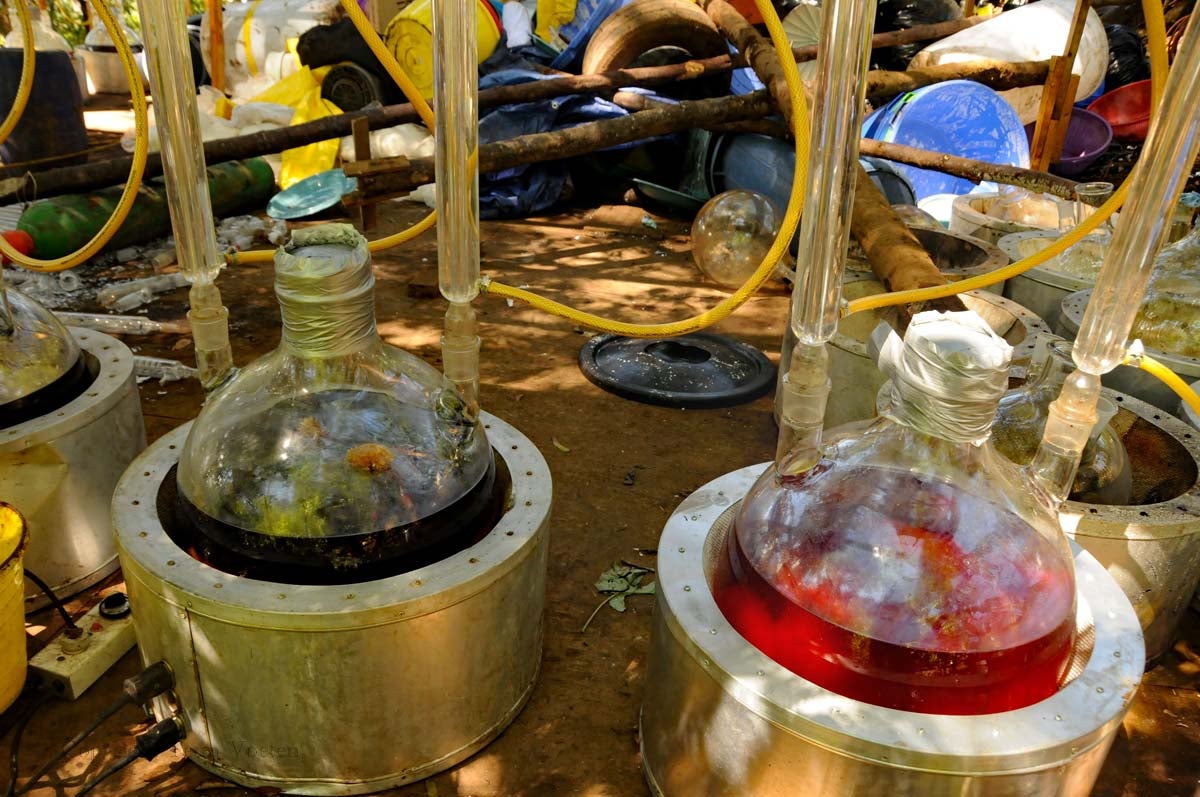
Crystal meth can be injected, snorted, smoked or taken in pill form. It produces enormous amounts of dopamine, five times as much as with cocaine. It also slows down the natural absorption of neurotransmitters so the drugs can stay active for 24 hours. In short, the user is experiencing a high that cannot be attained by any other means.
Some people get addicted the very first time, others remain weekend users, but most become heavy users within a year or so. Sleep deprivation, severe weight loss and muscle degradation cause serious physical damage. Irreversible cerebral changes, psychoses, high blood pressure resulting in strokes, and kidney failure are common symptoms.
Mexico and the Golden Triangle are important production centres. There, drug lords have switched from opium to meth. The same is happening in Afghanistan where locals have started to use ephedra, a local shrub that is a natural source of ephedrine, to make meth simply and cheaply. This meth is eventually shipped in a perverse form of globalisation by Pakistani traffickers to Mombasa and eventually winds up on the mean streets of Harare.
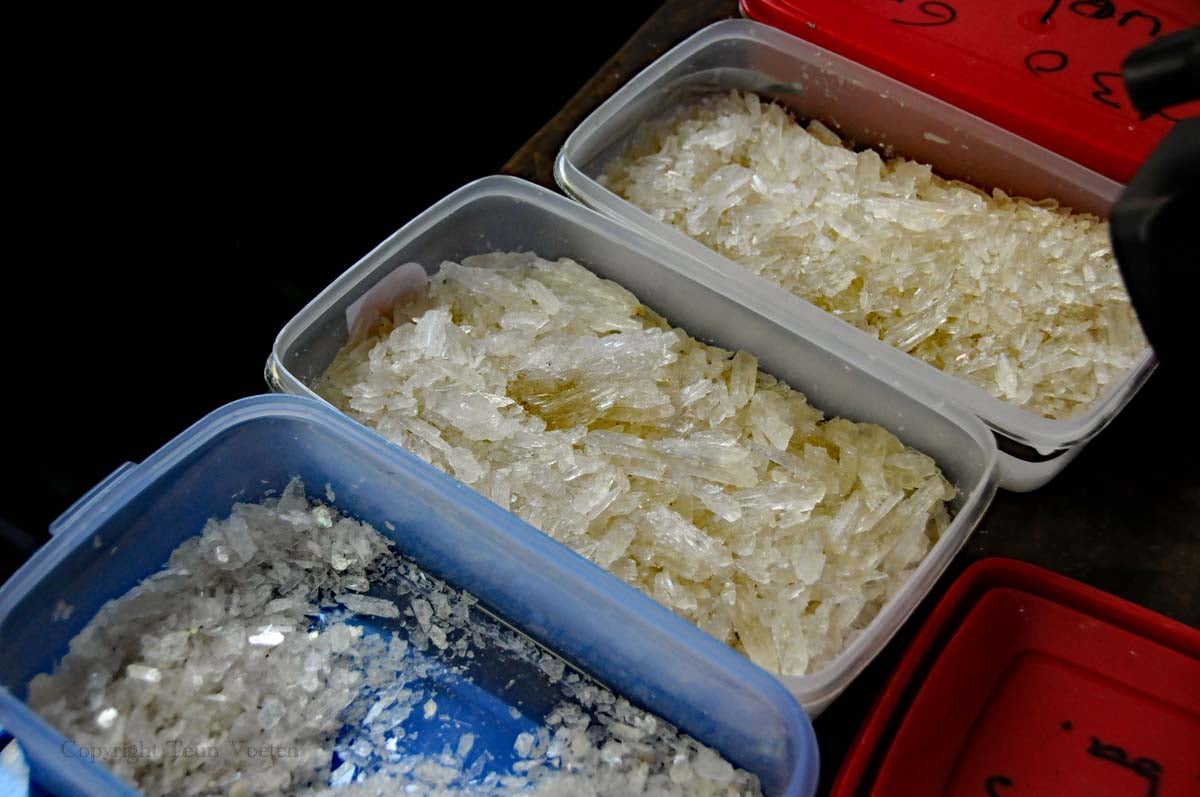
Until recently, meth was relatively unknown in Europe. It was mainly consumed in a subculture of gays during chemsex: drug-fuelled orgies that can last 72 hours. According to the EMCDDA (European Monitoring Centre for Drugs and Drug Addiction), the Netherlands has become a prime production centre. Thanks to lax narcotics laws, a huge underground drugs industry came into existence in the Netherlands as early as the 1970s. Ultra-strong weed was the original industry.
In the 1980s, the sector started to import cocaine and set up labs to produce synthetic drugs such as speed and xtc pills. Now, these same labs have switched to meth. This is not difficult, since the same equipment and networks can be used. In 2015, the first lab ever was discovered in Holland. Last year, nearly 32 labs were uncovered. In many cases, Mexican lab technicians, called cooks, were on site. This caused sensational headlines such as “The Mexican cartels are coming to Holland”.
The cartels don’t exist
Los Cárteles No Existen is the provocative title from a book by Mexican political scientist Oswaldo Zavala, who states that cartels are not a separate category, but merge smoothly in a gray zone with the authorities. The term cartel suggests well organised structures, but they are actually fluid networks and temporary labour alliances. “Every idiot and his brother can call themselves a cartel,” says Pedro Vivanco, a former meth cook doing time in the central prison of Morelia, the capital of Michoacá. According to him, it is a flexible, dynamic and sophisticated sector with hundreds of labs in the state. From small kitchen labs in the city to huge production facilities hidden in the jungle. Transports are usually organised by experienced traffickers.
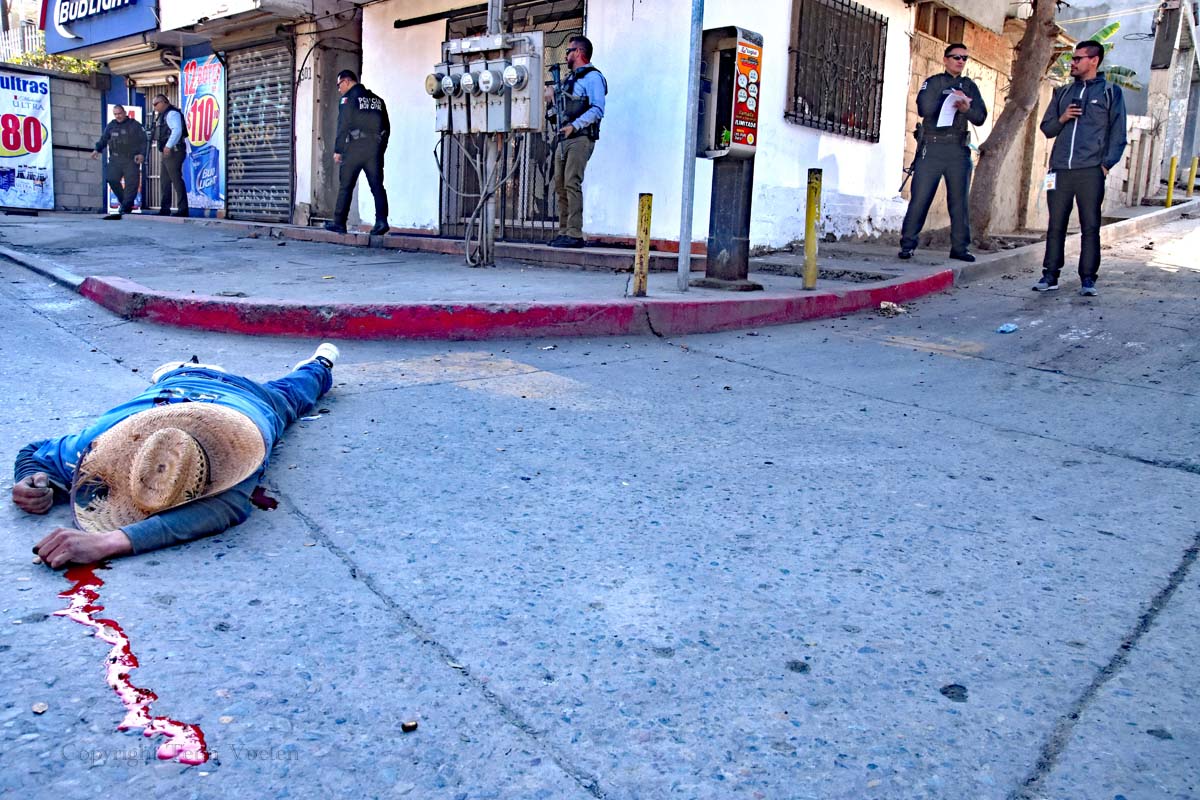
Everybody can contribute a share and pitch in something: from a few hundred grams, to tens, even hundreds of kilos. Pedro knows his subject since he ran a meth lab in California. He got caught, but got off the hook with a light sentence and was deported. He explains how the necessary ingredients, the precursors, are arranged by “dedicados”, people specialised in this branch of the business. The precursors are imported from China and arrive in the port city of Lázaro Cárdenas, 400kms west of Morelia. The method most commonly used produces two kinds of meth: levorotatory or dextrorotatory. The first is useless garbage, the last is the sought-after end product. He explains how you can separate these chemical variations with the help of tartaric acid, a specialty of the Mexican cooks. Pedro also knows about the ephedra plant: “We tried to cultivate it, but our climate is not suitable,” he explains.
The Craziest One
Under the guidance of the charismatic leader Nazario Moreno González, the La Familia Michoacana cartel once ruled the state of Michoacán. Nazario’s nickname was El Mas Loco, the Craziest One. La Familia specialised in opium and marijuana for the US market, but saw its revenue shrink with marijuana legalisation in many states and heroin no longer fashionable. With the 2005 ephedrine ban in the US, producing crystal meth suddenly became very lucrative.
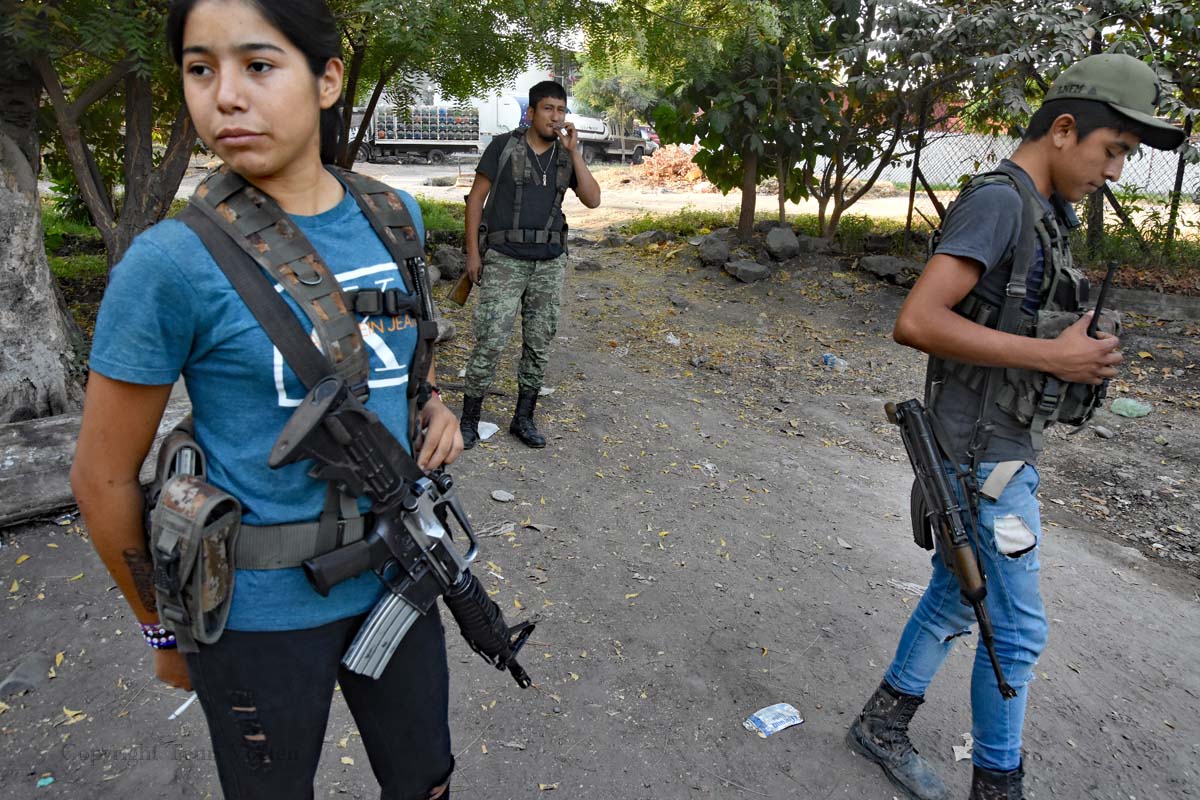
El Mas Loco strictly prohibited local meth dealing and consumption, a pragmatic approach to maintain law and order and protect public health. When the government managed to kill El Mas Loco in 2014, La Familia split into factions that soon fought each other in a deadly competition. Self-defence militias sprung up like mushrooms to protect lawyers against extortion from criminal groups.
One of these groups is Los Viagras. Its home base is Tierra Caliente, the Hot Land, a remote and inaccessible region in Michoacán. Los Viagras is officially designated as a cartel, but the group refers to itself as a self-defence militia, which is printed in large, white letters on the windshield of the black SUV in which its leader, nicknamed El Ingeniero (The Engineer) cruises around. With his wild, black beard and his long, unkempt hair he looks like a lost hippie. But a giant, gold-plated revolver on his hip shows he is not a softie. A bodybuilder with a skull tattooed on his large biceps is at his side. At their base, a sloppy house on a dirt road, five skinny teenagers linger with AK47s and M16s.
Informal armed groups rule the streets here: the capital is hours always and the authorities are nowhere to be seen. The last village cop left years ago. The Engineer used to cultivate poppies. Now, Los Viagras wants to focus on marijuana because the federal government in Mexico City plans to legalise it.
“We narco-traffickers are exploited by the cartels,” he complains, adding to the confusion of what a cartel exactly is. Los Viagras was going to show me a crystal meth lab, but unfortunately for me, the labs ceased production. Coincidentally, just a week ago, it prohibited meth sales and consumption. “Meth destroys our community,” explains the leader as he introduces me to a girl that hangs around the group. Her mother is a heavy meth junkie. “Complete families disintegrate because of meth,” the Engineer explains. Local meth dealers are – without any formal process – executed. A radical, but effective way of prohibition.
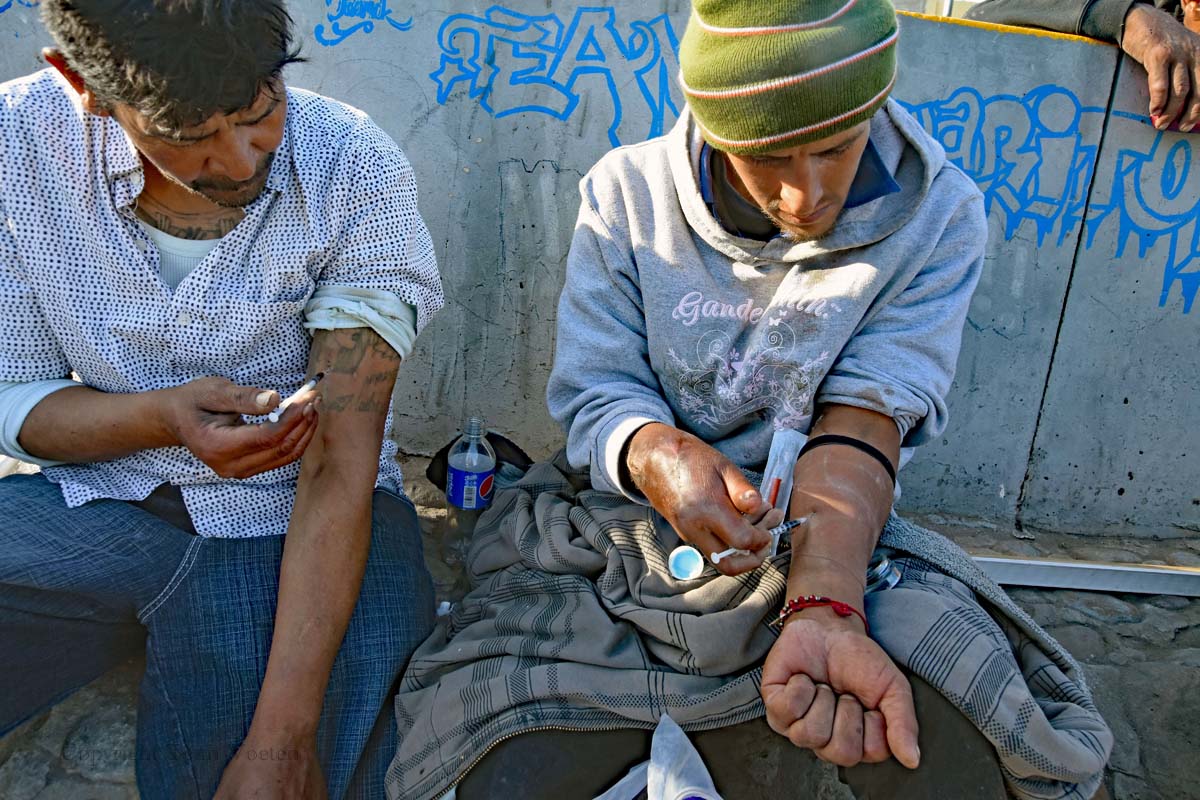
The group has buried the hatchet with a dozen other armed groups such as Los Caballeros Templarios, the brothers Valencia cartel and remnants from La Familia. They have now joined forces in a front called Los Cárteles Unidos (The United Cartels) to defend themselves against the incursion of the CJNG. This stands for Cártel Jalisco Nueva Generación, an organisation that in a few years’ time, with franchising, ultra-violent tactics and slick narco-propaganda, has established a firm presence in 29 out of Mexico’s 32 states.
Just a week before I visited the Viagras, a battle took place in the village of Aguililla, 50kms down the road. Twenty-seven fighters were killed on all sides. The CJNG decapitated seven of their adversaries. Images circulated on the internet, with the seven bodies spread out like flower petals, the heads arranged in the middle. Carefully orchestrated performances of cruelty are a recurrent event and are, just as the beheading videos from Isis, not irrational savagery, but a well-thought-out campaign of intimidation into submission.
When a rumour spreads that a column of soldiers and federal police is on its way to Aguililla, the Viagras hide their weapons and dissolve among the population, who don't seem to have the slightest problem with an armed group in their midst.
A world of cold loneliness
Back in Morelia, all seems quiet. The city is a jewel of colonial architecture and features high on the world heritage list of Unesco. On the Plaza de las Rosas, cafes are busy with chatting families and couples in love holding hands, A little bit further, teenagers peacefully smoke marijuana at a fountain. Still, in Morelia there are 25 drugs-related murders a month, the head of the police Israel Patrón Reyes tells me at his office.
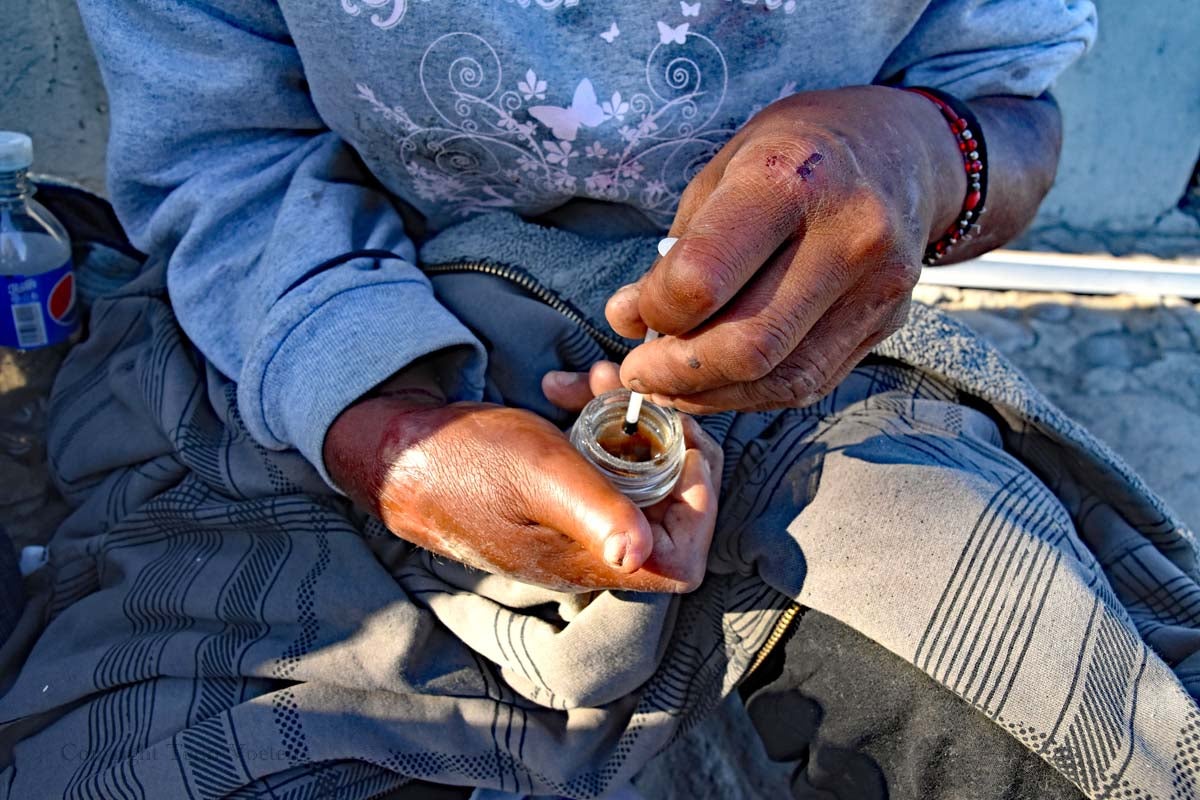
But the cartels have made a deal among themselves not to fight out their differences in the centre. The estimated tens of thousands of crystal meth addicts are hardly present in the centre. In a more challenging neighbourhood, I talk to Ivanovic Salazar, director of a rehab clinic. In Morelia, there are approximately 150 of these kinds of clinics, each with 50 clients on average. That makes 7,500 meth addicts in treatment, nearly one percent of the city’s population. According to Ivanovic, each family in Morelia has one or two members with drug problems. Ivanovic himself was for years addicted to crystal meth. He went to rehab15 times. Every time he failed. This number is not uncommon, I learn later from other addicts.
Jezús Esquivias, a teacher of physical education, was in the clinic 13 times, and every time for around three or four months. Added up, that is nearly four years of his life. “Every time I left the rehab, I was back on the meth pipe within a few hours,” he says.
“Most cures fail because of an extremely strict, nearly military regime,” Ivanovic explains. “The most important question is why someone uses meth in the first place. Why a person cannot find a feeling of happiness with other means in normal life.” An important component of his treatment is intensive, in-depth psychological sessions with his clients, who sometimes spend 18 months in treatment. I am invited for a group session and am free to ask anybody about their history of addiction.
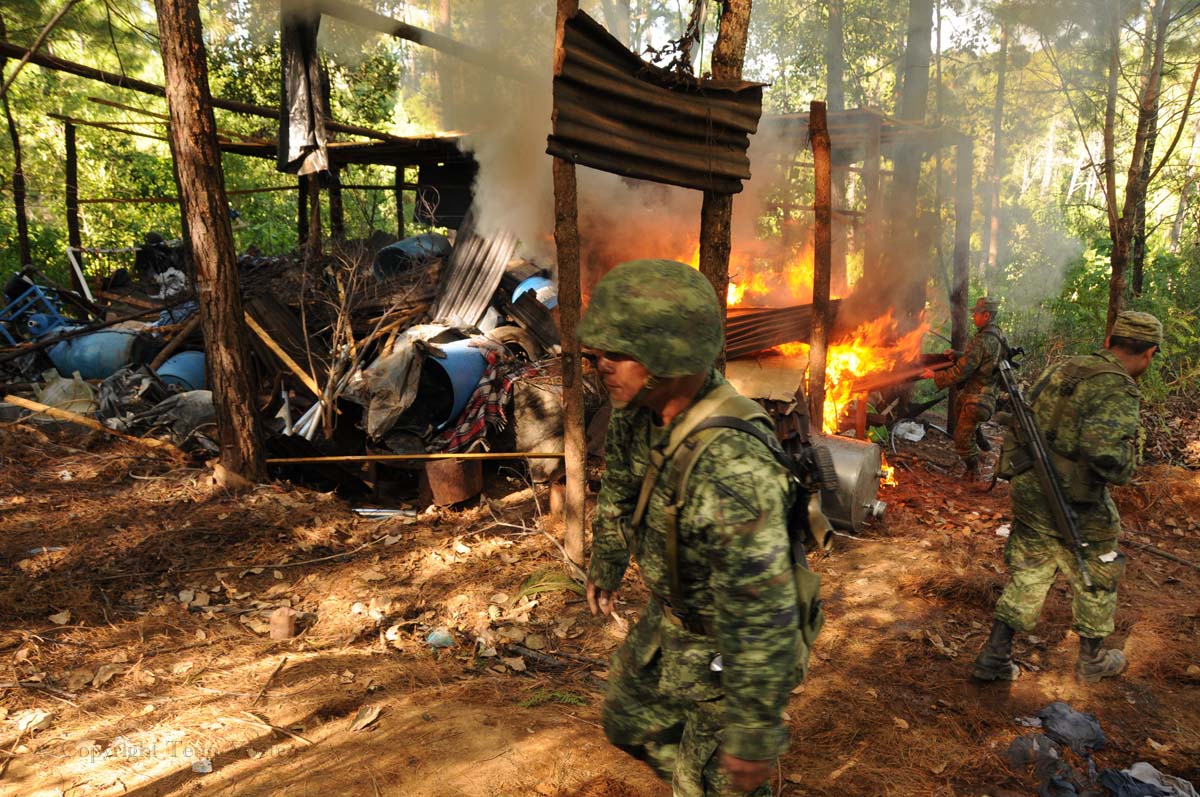
People from the lower socio-economic strata are overrepresented, but also I meet many people from the upper middle class. The teacher explains that many of his colleagues are also using meth. It has become normal among the youth, many people tell me. “We did not realise how dangerous it was,” says José Guzmán, a former courier delivering inkjet cartridges. “We knew the horror campaign movies, but thought that was exaggerated,” he explains. The quick tolerance for meth is treacherous. José says that, initially, he could get 20 hits from a gram. Eventually, he was smoking nearly four grams a day. He locked himself in his room and hardly left. “I used to be a lively, affectionate boy. Once addicted, I entered a cold world of loneliness.”
Jezús says he started to lie and deceive to hide his consumption. “I wasn’t hungry anymore, but I pretended to eat the food my mother made for me and gave it to our dog. On the weekends, I grabbed my sport bag and ball and told her I was playing soccer with friends. But I went straight to my buddies down the road to smoke meth with them.” As with many users, Jezús started to suffer from delusions and developed a psychosis. “I was convinced my family wanted to kill me and I did not dare to stay at home anymore. I slept outside on vacant lot. The stars in the sky were my blanket.”
The Mexicans arrested in the Netherlands and Belgium are, for some, proof that Mexican cartels are coming to Europe. But that is exaggerated. European criminal groups would not tolerate foreign organisations establishing themselves in their territory. But there are indeed many mutual contacts. In 2014, El Chino Anthrax, a high commander from the Sinaloa cartel, was arrested at Schiphol airport in Amsterdam. Other contacts are made in the Spanish resort town Marbella, which is de facto a summer conference for the international drugs mafia. According to a former top smuggler, criminals visit each other’s parties and exchange knowledge and routes.
There are different hypotheses about what the Mexicans are doing in Europe. According to the Dutch federal police, brokers in Mexico provide cooks to work in labs in Holland. Sometimes these middlemen have counterparts in Spain, where Mexicans can easily hide. A former meth producer in a Mexican jail told me there are also cordial relations with Mexican groups that are already present in Amsterdam.
For the moment, it looks like most meth produced in Europe is for export, mostly to Australia. But it is important to monitor consumption. In general, western consumers are more educated and know the dangers of meth. And there are many cheaper and less dangerous alternatives. A speed dealer once told me he refused to sell meth out of principle. But the risk exists that a growing underclass in Europe will discover meth once it becomes cheaper, as has been happening all over the world. To use a Mexican expression: once the toothpaste is out of the tube, you can’t get it back in.
Teun Voeten is a war photographer and cultural anthropologist. He is working on a book on global trends in crystal meth




Join our commenting forum
Join thought-provoking conversations, follow other Independent readers and see their replies
0Comments